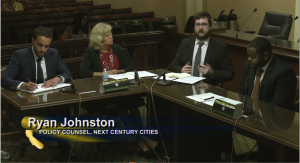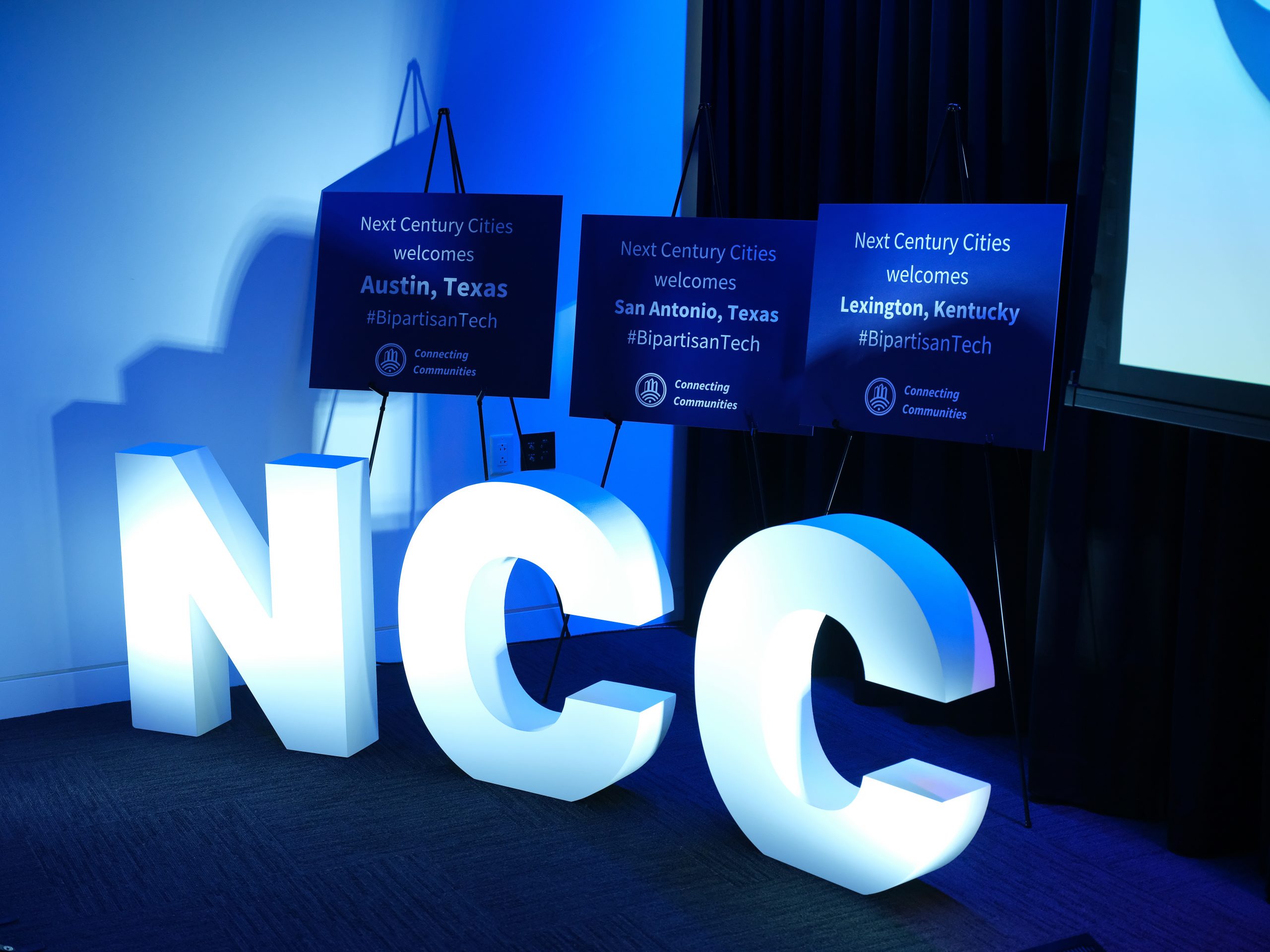By Ryan Johnston

On May 23, 2023, the California State Assembly Committee on Communications and Conveyance held an informational hearing entitled “Digital Equity and the Broadband Equity, Access, and Deployment (BEAD) Program.” The hearing was called to provide oversight of the California Public Utilities Commission and examine the barriers to deploying State broadband funding.
In Johnston’s testimony, he highlighted that, historically, municipalities have had to address deployment, adoption, and inclusion efforts alone. The State should treat them as key partners in broadband program development. Additionally, Johnston explained that cities, towns, and counties across California are hard at work developing creative solutions to close persistent digital divides.
Johnston also provided clear examples of ways in which California municipalities are leading the way in broadband deployment, adoption, and digital equity programs. For instance, before the COVID-19 pandemic, the City of Long Beach realized that its digital divide was driven by race. As a result, it planned and built a fiber network that now provides a connection to over 90% of the city’s population. Similarly, the City of Chula Vista planned and developed a comprehensive digital inclusion strategy that helped determine what drove connectivity gaps while providing clear metrics for success.
Noting that communities are natural problem solvers, Johnston urged members of the State Assembly or California Public Utilities Commission to closely collaborate with impacted communities.
During questioning, Assemblywoman Mia Bonta asked how funding information should be shared with the communities that could use it best. Johnston emphasized the need to meet people where they are. Since many municipal leaders may have limited knowledge or capacity to address broadband issues, they are unlikely to respond to complicated requests for proposals (RFPs) and miss out on much-needed resources. Providing clear information about the benefits and requirements of California’s broadband programs ensures that every community will be able to access the funding needed to close digital divides.
Further, Chairwoman Tasha Boerner asked panelists how California could best streamline the funding programs already in place. Johnston suggested that the Assembly, CPUC, and California Department of Technology collaborate to provide materials about how existing funding programs can be used in tandem, publishing a clear roadmap for communities to resource their broadband goals.
The May 23rd hearing shows that state lawmakers are taking the challenges of informing communities about existing and future funding programs seriously. In order to put federal funds to their best use statewide, state officials must make every effort to inform local leaders and community-based organizations that resources are available and can be used to address unique connectivity challenges.
Watch Ryan’s testimony here.

